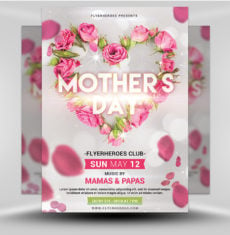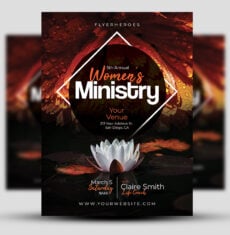Celebrate the lunar new year with our Chinese New Year flyer!
This flyer uses a beautiful, simple design so that your event is front and center. The dark red background provides a rich contrast for the gold and white of the event information. The central graphic is an intricately designed medallion in white and gold, with a gold pig at the center. This design uses shadows and a lens flare to add a sense of depth, as well as a reflective quality. The event text is highly stylized, using the same white and gold. The entire design is outlined by a thin gold border with knotwork at each corner.
You can use this dynamic flyer for any Chinese New Year gathering!
What Fonts Do I Need?
Similar Flyer Designs
General Information:
This flyer template is a premium Photoshop PSD flyer/poster template designed by FlyerHeroes to be used with Photoshop CS4 and higher.
Once you have purchased this flyer template, you are free to make any customizations and modifications you’d like.
You are also granted an unlimited use and 100% royalty-free license, meaning you can use this product as many times as you wish. You are free to use this product in both personal and commercial work.
You can read more about our file licenses here and our file requirements here.
Please note, stock models/photographs of people are used for demonstration purposes only and are not included in the final download. We do however include a blank placeholder layer to make using your stock photos as easy as possible.
If you have any further questions, please feel free to direct your questions to FlyerHeroes Support.
















